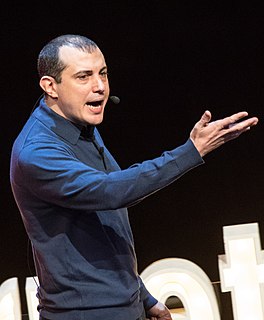A Quote by Juan Benet
Filecoin is a token with fundamental value. Filecoin is like Bitcoin, but miners amass hard drives instead of hashing computers.
Related Quotes
What are we going to do as automation increases, as computers get more sophisticated? One thing that people say is we'll retrain people, right? We'll take coal miners and turn them into data miners. Of course, we do need to retrain people technically. We need to increase technical literacy, but that's not going to work for everybody.





































